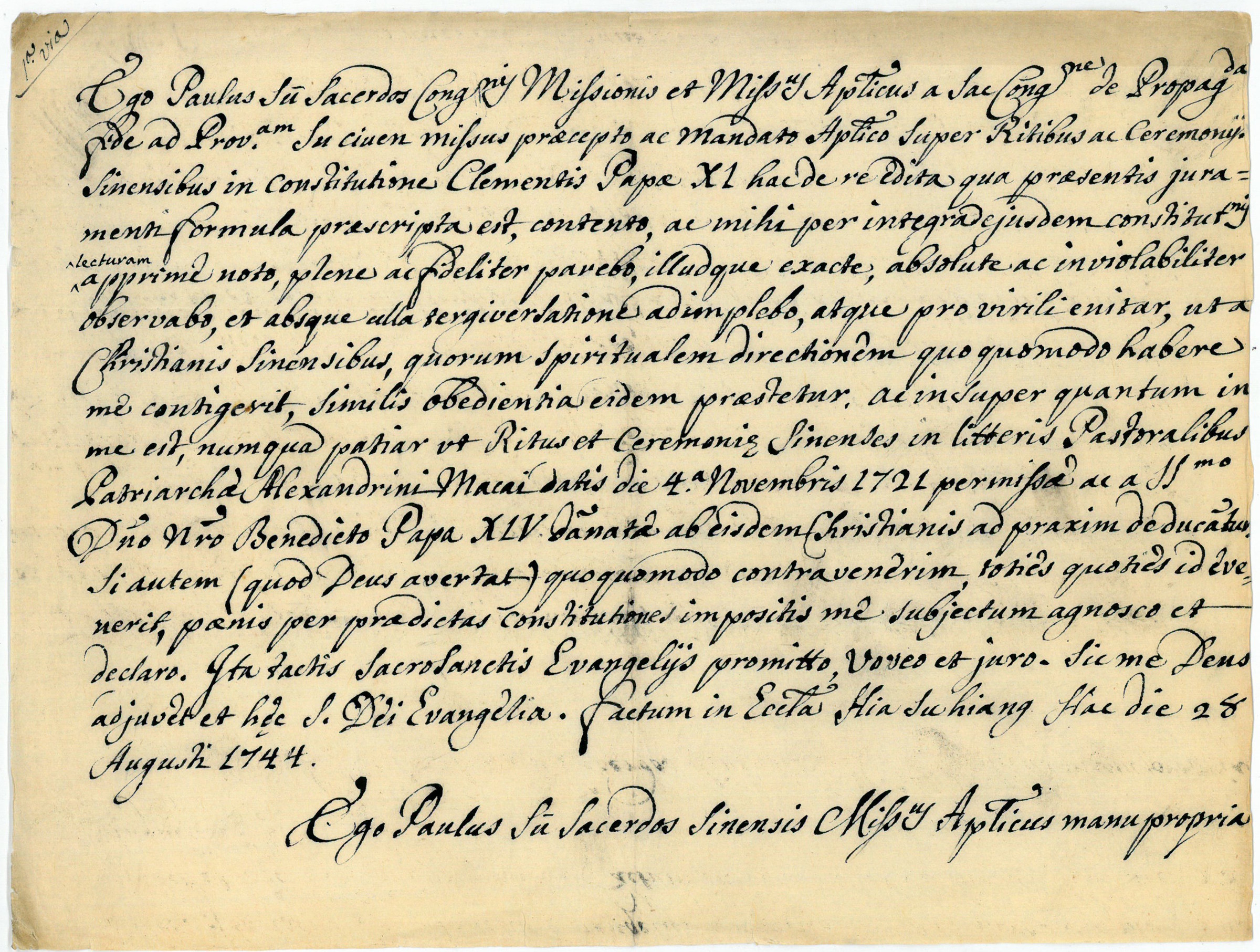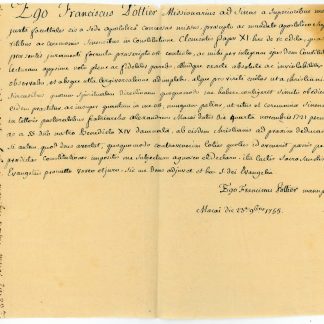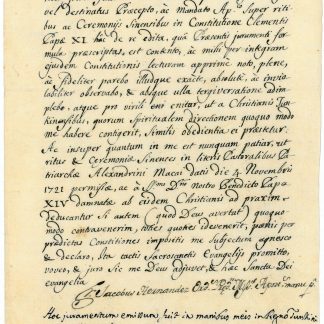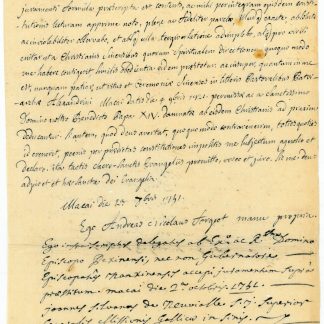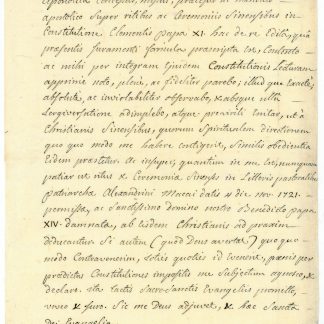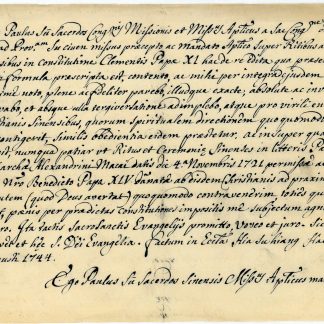Autograph document signed. Co-signed by the Bishop of Macau, Bartholomeu Manuel Mendes dos Reis.
Oblong 4to. 1 p. In Latin.
€ 4,500.00
An oath renouncing the practice of the Chinese rites, taken by the Chinese Lazarist as required by the Papal Bull "Ex Quo Singulari" (1742). The oath was sworn on the Bible, and a form signed in one's own hand ("manu propria") had to be produced as evidence.
Paul Sou was born Sou Hong-hiao near Foshan, Guangdong province, and worked early as a missionary in Sichuan. In 1723 he was ordained a priest by the Lazarist Bishop Johannes Müllener, Vicar Apostolic of Sichuan. Sou joined the Lazarists in 1725, thus becoming the first Chinese Lazarist priest. In 1733 he was jailed and flogged in Canton and returned to Sichuan, where he managed to continue his missionary work until 1745, when he was forced to flee to Fuzhou, Fujian province. There he attended the cremation of the martyred Saint Pierre Sanz and took part of his ashes for burial to Macau. In 1749 Sou went briefly to Beijing and then continued his missionary work in Sichuan until 1753, when he retired in Macau.
During the early years of their mission to East Asia, the Jesuits led by Matteo Ricci accommodated Catholicism to Chinese customs and Confucian practice in important ways, both for political reasons and in the hope of attracting more converts. Criticism of this syncretism is as old as the Chinese rites themselves, and Ricci's immediate successor Niccolò Longobardo attempted to change course, which led to his replacement as provincial. When Dominican and Franciscan missionaries entered China, they reported to Rome critically on the Jesuit practices. A first condemnation was decreed by Pope Clement XI in 1704 and confirmed in the 1715 Bull "Ex Illa Die". In reaction to the condemnation, the Kiangxi Emperor, who initially had tolerated the Christian missionaries and enjoyed especially good relations with the Jesuits, officially forbade Christian missions in China. In 1721, Carlo Ambrosio Mezzabarba, the Latin Patriarch of Alexandria, was sent to Macau and Beijing as a Papal legate. Despite the concession of "eight permissions" regarding the practice of the Chinese rites, officiated in a pastoral letter to the missionaries from 4 November 1721, the Emperor did not revoke the ban. Finally, in "Ex Quo Singulari", Pope Benedict XIV re-affirmed the 1715 Bull and required all missionaries in the region to take the oath renouncing the practice of Chinese rites.
A transcription and translation of the document are available on request.

